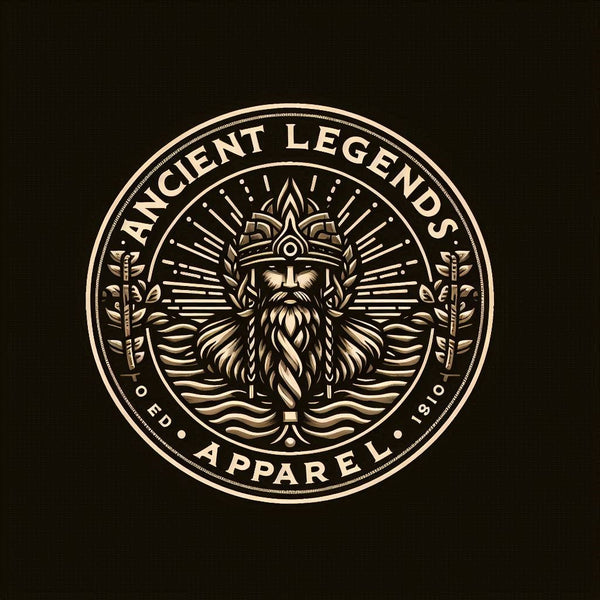Top 5 Gods or Goddesses of Ancient Prophecies
Karl FShare
INTRODUCTION
Venture with me now on a journey back to the ancient world, where gods walked among men, where prophecy often carried more weight than fact, and where the mysteries of the supernatural were woven into the tapestry of human history. This article will explore five of the most influential deities associated with prophecies from various civilizations from long ago, shedding light on their stories, their symbolism, profound interpretations, their portrayal within contemporary culture, and the enigmatic legacies that they have bequeathed to the modern world.
ORIGIN AND CULTURAL CONTEXT
Our adventure takes us first to ancient Greece; the birthplace of Thoth, the Egyptian pantheon's heart-bearer, and Hermes from the Greek roster of gods. Each is credited as the gods of knowledge and bearers of divine prophecies.
The Norse myths gave birth to Odin, the All-Father, while the Celtic prophecies pay homage to Brigid, the goddess of poetry. Hindu prophecies turn our gaze towards Brahma, who spins ambitions into reality.
Each cultural tapestry intertwines, with their gods bearing prophecies, holding deep cultural significance, and reflecting the societies that worshipped them.
THE LEGEND OR STORY
Thoth, the heart-bearing ibis-headed Egyptian god of knowledge, was believed to determine a deceased person's fate by weighing their hearts against the feather of Ma'at, the goddess of truth. Their destiny was foretold through this balance.
Hermes, the Greek god famous for his winged sandals and cunning nature, was known as the divine trickster, delivering prophecies with his silver tongue, balancing the future's truth and deception in each word.
Odin, the most powerful Norse god, sacrificed his eye to drink from Mimir's Well of Knowledge, grants him clairvoyance, understanding the course of destiny and wielding it.
Brigid, the Celtic goddess, was said to kindle the embers of thought into prophecy through poetry, weaving destinies through verse. The Birth-bringer, the Fire-starter, her words ignited nations.
Hinduism offers Brahma, creating and dictating destinies, unfolding prophecies with every breath. For every reality that Brahma dreams, it becomes a prophecy for mankind.
INTERPRETATIONS AND SYMBOLISM
Throughout ancient history, gods of prophecy symbolized various aspects of transcending mundane reality and embracing the divine. Thoth's duty of weighing hearts symbolized moral judgment and the impact of one's actions on their afterlife. Hermes, the fickle god, represented duality and unpredictability of future.
Odin's clairvoyance symbolizes the price one pays for wisdom and the pursuit of knowledge. Brigid's poetic prophecies embodied inspiration, enlightenment and creativity. Brahma's dreaming of realities symbolized the cyclical nature of existence and the inexorable thread of fate that weaves through it all.
COMPARISONS IN OTHER CULTURES
The role of prophecy differs from one culture to another. In ancient Egypt and Greece, prophecies were often warnings or rules for kings and heroes. Norse prophecies often led to inevitable disaster, emphasizing fate's inexorable pull. Celtic prophecy, through Brigid, formed an inspirational, guiding force, while Hindu beliefs in Brahma's grand design underlined life's cyclical and interconnected nature.
MODERN REFERENCES AND POP CULTURE
The influence of these ancient gods has seeped into our modern popular culture. The prophecies of Hermes can be seen in the twisting plotlines of Game of Thrones. Odin's quest for knowledge is reflected in Gandalf's journeys in the Lord of the Rings. Thoth's balance of hearts is echoed in the concept of Heaven and Hell in many cultures. Brigid's inspirational verses have found echoes in modern poetry and literature, while Brahma's grand design continues to inspire spiritual seekers worldwide.
LEGACY AND LASTING MYSTERIES
While these ancient gods may no longer command temples or priests, they have instead found enshrinement within our collective consciousness. Their myths, tales, and the air of mystery that surrounds them all encourages us to delve deep into our ancient past, to seek answers, to ponder upon the mysteries of life. They continue to inspire us to question our place within the cosmos, the essence of our being, and the intricate web of fate that binds us all. As we continue our journey through the annals of time, the prophecies may have faded, but the gods remain, whispering wisdom from the past, blowing on the embers of our curiosity, and igniting our quest for understanding.
